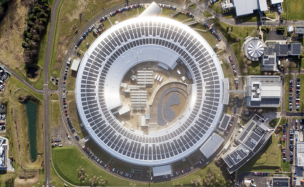A leading trade group is urging the National Security Council to think twice before classifying the space sector as critical infrastructure.
Eric Fanning, president and CEO of the Aerospace Industries Association representing 320+ companies, sent a letter on Tuesday to NSC head Jake Sullivan arguing that designating space as critical infrastructure could actually hurt the space industry by adding the burden of additional regulations without providing any additional funding.
“Critical infrastructure designations could come with additional requirements for industry operating in that sector—and likely without any additional federal funding,” Fanning wrote in a letter shared with Payload. “These requirements could adversely affect industry growth and development and could have a disproportionate impact on small businesses.”
Up for debate
In November, President Joe Biden launched a review of the nation’s critical infrastructure policy, including which sectors receive the designation and whether any updates are needed to the existing policy. As part of that review, the council is considering whether space should be added to the current list of 16 critical infrastructure sectors, Fanning wrote.
Sectors designated as critical infrastructure must work with the government to ensure their services are protected and would continue working in the case of an attack. The Department of Homeland Security also maintains national critical infrastructure centers and tracks potential threats to critical sectors.
On the Hill
Outside of the NSC review, there’s an effort on Capitol Hill to designate space systems, services, and technology as critical infrastructure. A bipartisan group of lawmakers introduced the bill in July, which they say is in line with an April recommendation made by the Cyberspace Solarium Commission 2.0.
“Space is infrastructure,” said Rep. Ted Lieu (D-CA). “Designating space as a critical infrastructure sector would help ensure the industry receives the attention and resources it needs, thereby strengthening our national security.”
Impact on industry
In the letter, however, Fanning said that a designation as critical infrastructure could actually harm the industry, and pressed the NSC to consider the costs and benefits of making any change.
“Any cost-benefit analysis must recognize that a critical infrastructure designation is not accompanied by additional federal funding and presents a significant resource risk to federal departments and the space industry,” Fanning wrote. “As future government resources are increasingly constrained, this presents a significant risk to space agencies to meet new requirements and to industry if resource-constrained agencies seek to pass new costs to users.”
Fanning also argued that some space capabilities, like manufacturing, comms, defense, and transportation are already considered critical infrastructure, creating overlap. He added that space should be considered a domain, like air or sea, not a sector.





